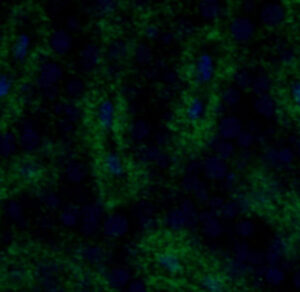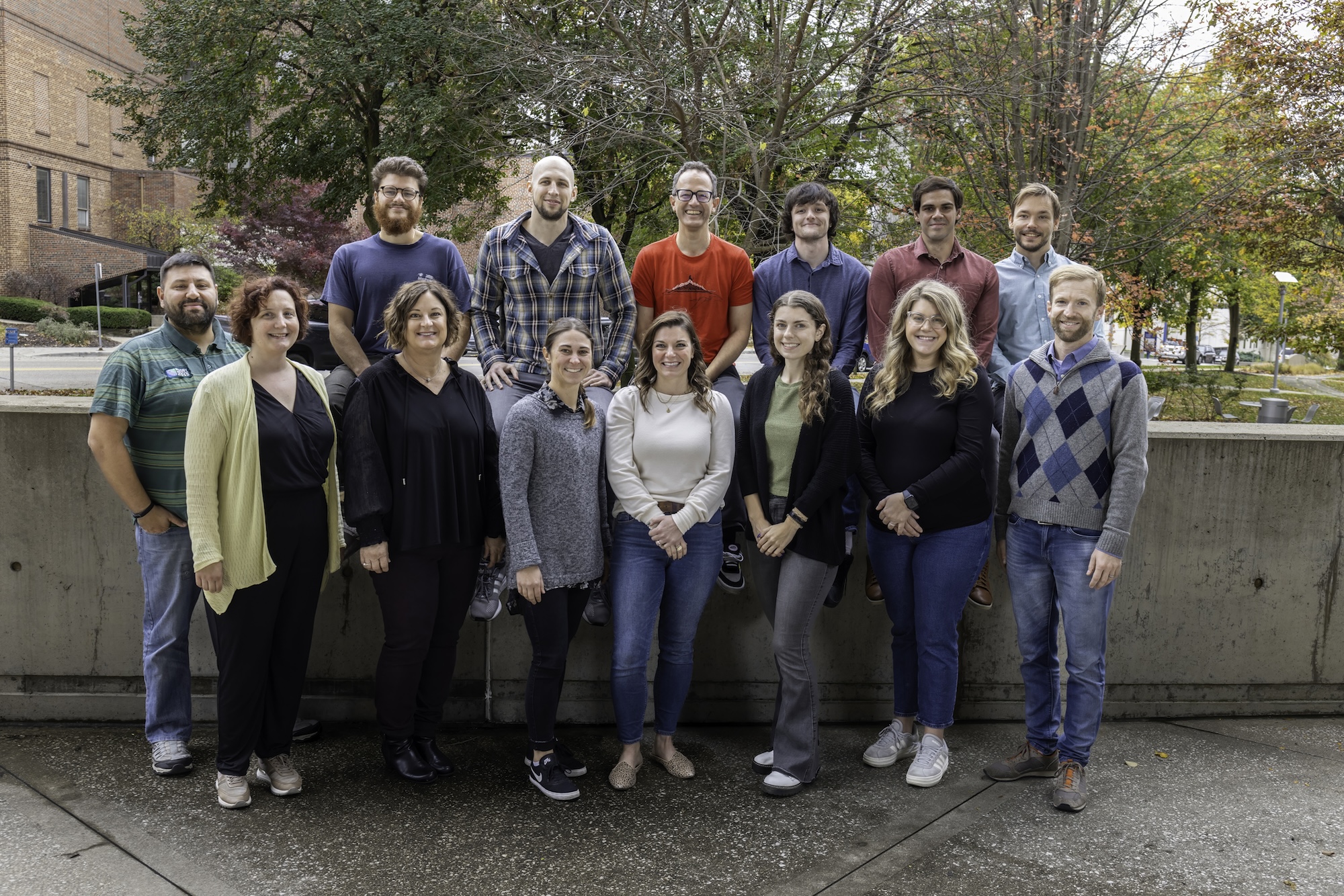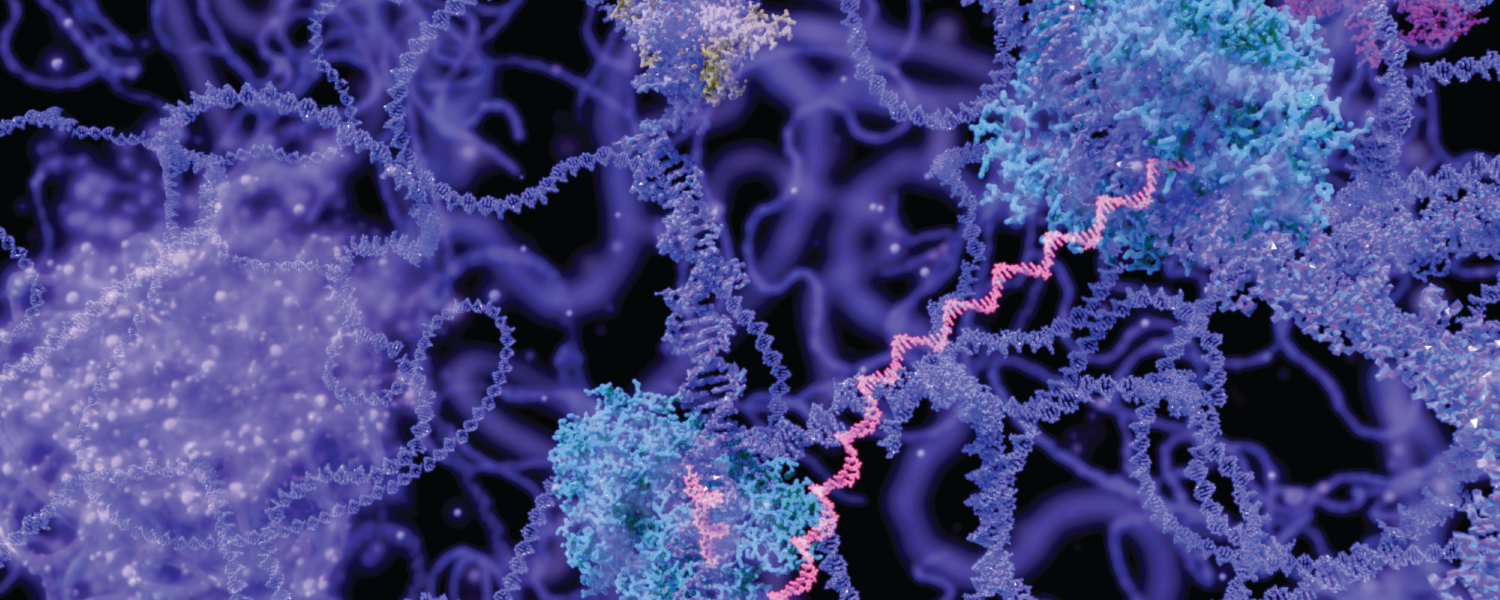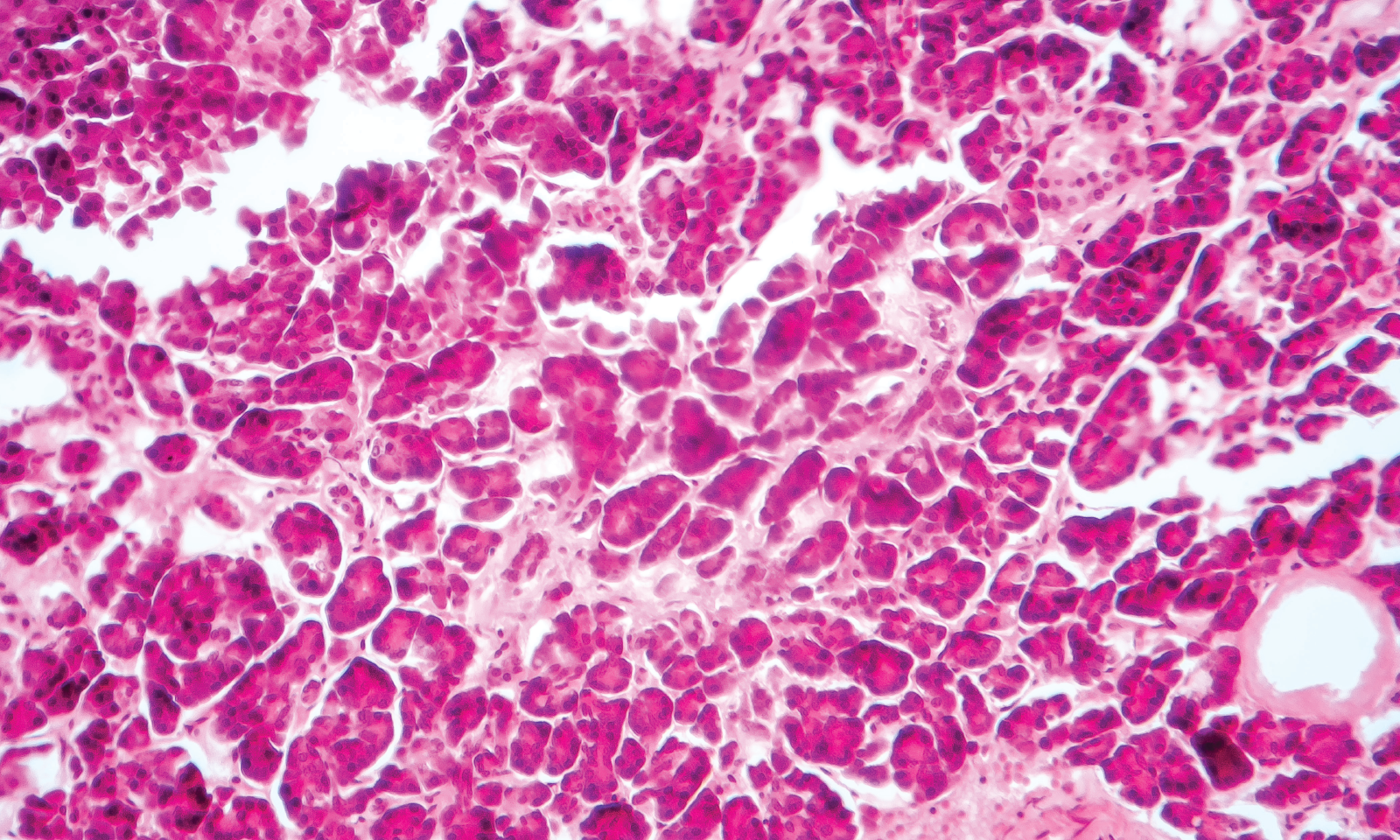Pospisilik
Laboratory
 Epigenetic Origins of Heterogeneity and Disease
Epigenetic Origins of Heterogeneity and Disease
Diabetes, neurodegenerative diseases, cancer and obesity are among the world’s most pressing public health challenges, affecting more than 1 billion people. Although vastly different on the surface, these diverse conditions are now thought to stem, at least partially, from alterations in the epigenetic mechanisms that regulate gene expression and metabolism. Recent evidence suggests that genetic predisposition, early life environment and even intergenerational influences prior to birth can have lasting consequences for health across the lifespan.
The Pospisilik Lab seeks to better understand epigenetic regulatory systems and their role in disease susceptibility and heterogeneity. Beyond advancing understanding of individual biological variation, the lab’s goal is to translate our findings into improved approaches for disease prediction, prevention, diagnosis and therapy. Ultimately, we hope to develop new tools that leverage epigenetic health states to predict a person’s lifelong health trajectory at birth.
Earlier work by Dr. Pospisilik and the team have resulted in a series of major advances in the field, including elucidation of some of the first molecular pathways that define healthy versus unhealthy obesity; the identification of the first disease-causing epigenetic defects in diabetes; and the development of foundational models of purely epigenetic disease.
Join Our Teams
The labs of Dr. Adelheid Lempradl and Dr. Andrew Pospisilik are seeking to hire a Postdoctoral Fellow or Research Scientist for a combined project focused on exploring two unique and powerful models of paternal epigenetic inheritance.
Our Impact
We’re raising thousands to save millions.
We’re turning hope into action for the millions of people around the world affected by diseases like cancer and Parkinson’s. Find out how you can help us make a difference.
- 122 peer-reviewed papers published in 2024, 63 of which were in high-impact journals
- 15 VAI-SU2C Epigenetics Dream Team clinical trials launched to date
- 10 clinical trials co-funded by VAI & Cure Parkinson's (out of 41 total International Linked Clinical Trials Program trials)
J. Andrew Pospisilik, Ph.D.
Chair and Professor, Department of Epigenetics
Areas of Expertise
Epigenetics, phenotypic variation, metabolism, epigenetic health states, stochasticity, model development, transgenerational effects
Biography
Dr. J. Andrew Pospisilik is a leading expert in the study of how the epigenome regulates complex trait variation as well as disease susceptibility and heterogeneity. He earned his B.Sc. with honors and his Ph.D. in Physiology from University of British Columbia, where his work focused on type 1 and 2 diabetes. Later, as a postdoctoral fellow in the lab of Dr. Josef M. Penninger at IMBA Institute of Molecular Biotechnology, Dr. Pospisilik performed the first genome-wide RNAi-screen for obesity in Drosophila, identifying some of the first specific developmental regulators of brown adipose tissue formation, and overturned dogma showing that compromised mitochondrial function actually buffers against diabetes. In 2010, he established his laboratory at Max Planck Institute of Immunobiology and Epigenetics in Freiburg, Germany, where his team made groundbreaking advances, including development of novel sensitized models for understanding epigenetic stability and variation in metabolic disease; the first formal proof for the existence of polyphenism in mammals (including suggestions in humans) and the first mapping of a genetic architecture for mammalian phenotypic buffering. In 2018, Dr. Pospisilik joined Van Andel Institute as chair of its Department of Epigenetics and a founding member of its Metabolic and Nutritional Programming group. He is the recipient of numerous awards and accolades, including the 2016 Novo Nordisk Helmholtz Young Investigator Award, the 2015 GSK Award for Basic Medical Research, the 2013 EASD Rising Star Award and the 2011 RISE1 Award from the Epigenesys Network of Excellence. He also is a member of the World Economic Forum faculty.
SELECTED PUBLICATIONS
Soto-Avellaneda A, Prigent A, Meyerdirk L, Schautz N, Pospisilik JA, Brundin L, Henderson MX. 2025. Helicobacter pylori infection and a-synuclein pathology drive parallel neurodegenerative pathways in the substantia nigra. J Neuroinflammation 22(1).
Panzeri I, Fagnocchi L, Apostle S, Tompkins M, Wolfrum E, Madaj Z, Hostetter G, Liu Y, Schaefer K, Yang C-H, Bergsma A, Drougard A, Dror E, PERMUTE, Chandler DP, Schramek D, Triche TJ Jr., Pospisilik JA. 2025. TRIM28-dependent developmental heterogeneity determines cancer susceptibility through distinct epigenetic states. Nat Cancer.
Drougard A, Ma EH, Wegert V, Sheldon R, Panzeri I, Vatsa N, Apostle S, Facnocchi L, Schaf J, Gossens K, Völker J, Pang S, Bremser A, Dror E, Giacona F, Sagar, Henderson MX, Prinz M, Jones RG, Pospisilik JA. 2024. An acute microglial metabolic response controls metabolism and improves memory. eLife.
Panzeri I, Fagnocchi L, Apostle S, Tompkins M, Wolfrum E, Madaj Z, Hostetter G, Liu Y, Schaefer K, Chih-Hsiang Y, Bergsma A, Drougard A, Dror E, Chandler D, Schramek D, Triche TJ, Pospisilik JA. 2023. Developmental priming of cancer susceptibility. bioRxiv.
Dror E, Fagnocchi L, Wegert V, Apostle S, Grimaldi B, Gruber T, Panzeri I, Heyne S, Höffler KD, Kreiner V, Ching R, Lu TTH, Semwal A, Johnson B, Senapati P, Lempradl A, Schones D, Imhof A, Shen H, Pospisilik JA. 2023. Epigenetic dosage identifies two major and functionally distinct β cell subtypes. Cell Metab.
Yang CH*, Fagnocchi L*, Apostle S, Wegert V, Casani-Galdón S, Landgraf K, Panzeri I, Dror E, Heyne S, Wörpel T, Chandler DP, Lu D, Yang T, Gibbons E, Guerreiro R, Brás J, Thomasen M, Grunnert LG, Vaag AA, Gillberg L, Grundberg, E, Conesa A, Körner A, PERMUTE, Pospisilik JA. 2022. Independent phenotypic plasticity axes define distinct obesity subtypes. Nat Metab 4(9): 1150-1165.
*Co-first authorship
**Highlighted in News & Views
Zhou W, Hinoue T, Barnes B, Mitchell O, Iqbal W, Lee SM, Foy KK, Lee KH, Moyer EJ, VanderArk A, Koeman JM, Ding W, Kalkat M, Spix NJ, Eagleson B, Pospisilik JA, Szabó PE, Bartolomei M, Vander Schaaf NA, Kang L, Wiseman AK, Jones PA, Krawczyk CM, Adams M, Porecha R, Chen BH, Shen H, Laird PW. 2022. DNA methylation dynamics and dysregulation delineated by high-throughput profiling in the mouse. Cell Genom 2(7):100144.
Costello KR, Leung A, Trac C, Lee M, Basam M, Pospisilik JA, Schones DE. 2021. Sequence features of retrotransposons allow for epigenetic variability. eLife 10:e71104.
Lu TTH, Heyne S, Dror E, Casas E, Leonhardt L, Boenke T, Yang CH, Sagar, Arrigoni L, Dalgaard K, Teperino R, Enders L, Selvaraj M, Ruf M, Raja SJ, Xie H, Boenisch U, Orkin SH, Lynn FC, Hoffman BG, Grün D, Vavouri T, Lempradl AM, Pospisilik JA. 2018. The polycomb-dependent epigenome controls β cell dysfunction, dedifferentiation, and diabetes. Cell Metab 27(6):1294–1308.
Dalgaard K, Landgraf K, Heyne S, Lempradl A, Longinotto J, Gossens K, Ruf M, Orthofer M, Strogantsev R, Selvaraj M, Lu TTH, Casas E, Teperino R, Surani MA, Zvetkova I, Rimmington D, Tung YCL, Lam B, Larder R, Yea GSH, O’Rahilly S, Vavouri T, Whitelaw E, Penninger JM, Jenuwein T, Cheung CL, Ferguson-Smith AC, Coll AP, Körner A, Pospisilik JA. 2016. Trim28 haploinsufficiency triggers bi-stable epigenetic obesity. Cell 164(3):353–364.
Stunnenberg HG, International Human Genome Consortium, Hirst M. 2016. The International Human Epigenome Consortium: a blueprint for scientific collaboration and discovery. Cell 167(5):1145–1149.
Öst A, Lempradl A, Casas E, Weigert M, Tiko T, Deniz M, Pantano L, Boenisch U, Itskov PM, Stoeckius M, Ruf M, Rajewsky N, Reuter G, Iovino N, Ribeiro C, Alenius M, Heyne S, Vavouri T, Pospisilik JA. 2014. Paternal diet defines offspring chromatin state and intergenerational obesity. Cell 159(6):1352–1364.
Jais A, Einwallner E, Sharif O, Gossens K, Lu TTH, Soyal SM, Medgyesi D, Neureiter D, Paier-Pourani J, Dalgaard K, Duvigneau JC, Lindroos-Christensen J, Zapf TC, Amann S, Saluzzo S, Jantscher F, Stiedl P, Todoric J, Martins R, Oberkofler H, Müller S, Hauser-Kronberger C, Kenner L, Casanova E, Sutterlüty-Fall H, Bilban M, Miller K, Kozlov AV, Krempler F, Knapp S, Lumeng CN, Patsch W, Wagner O, Pospisilik JA, Esterbauer H. 2014. Heme oxygenase-1 drives metaflammation and insulin resistance in mouse and man. Cell 158(1):25–40.
Teperino R, Amann S, Bayer M, McGee CL, Loipetzberger A, Connor T, Jaeger C, Kammerer B, Winter L, Wiche G, Dalgaard K, Selvaragj M, Gaster M, Lee-Young RS, Febbraio MA, Knauf C, Cani PD, Aberger F, Penninger JM, Pospisilik JA, Esterbauer H. 2012. Hedgehog partial agonism drives Warburg-like metabolism in muscle and brown fat. Cell 151(2):414–426.
ALL PUBLICATIONS
Burmeister AR, Gordevičius J, Paul EN, Houck C, George S, Escobar Galvis ML, Sha Q, Brundin P, Pospisilik JA, Racicot K, Brundin L. 2022. Maternal herpesviridae infection during pregnancy alters midbrain dopaminergic signatures in adult offspring. Neurobiol Dis 169:105720.
Kabat AM, Hackl A, Sanin DE, Zeis P, Grzes KM, Baixauli F, Kyle R, Caputa G, Edwards-Hicks J, Villa M, Rana N, Curtis JD, Castoldi A, Cupovic J, Dreesen L, Sibilia M, Pospisilik JA, Urban JF, Jr., Grun D, Pearce EL, Pearce EJ. 2022. Resident TH2 cells orchestrate adipose tissue remodeling at a site adjacent to infection. Sci Immunol 7(76):eadd3263.
Stetzik L, Mercado G, Smith L, George S, Quansah E, Luda K, Schulz E, Meyerdirk L, Lindquist A, Bergsma A, Jones RG, Brundin L, Henderson MX, Pospisilik JA, Brundin P. 2022. A novel automated morphological analysis of IBA1+ microglia using a deep learning assisted model. Front Cell Neurosci 16:944875.
Xie A, Ensink E, Li P, Gordevičius J, Marshall LL, George S, Pospisilik JA, Aho VTE, Houser MC, Pereira PAB, Rudi K, Paulin L, Tansey MG, Auvinen P, Brundin P, Brundin L, Labrie V, Scheperjans F. 2022. Bacterial butyrate in Parkinson’s disease is linked to epigenetic changes and depressive symptoms. Mov Disord 37(8):1644–1653.
Yang CH, Longinotto J, Panzeri I, Arrigoni L, Wegert V, Heyne S, Seifert G, Lempradl A, Bonisch U, Pospisilik JA. 2022. Isolation and processing of murine white adipocytes for transcriptome and epigenome analyses. J Vis Exp 184:e64128.
Orthofer M, Valsesia A, Mägi R, Wang QP, Kaczanowska J, Kozieradzki I, Leopoldi A, Cikes D, Zopf LM, Tretiakov EO, Demetz E, Hilbe R, Boehm A, Ticevic M, Nõukas M, Jais A, Spirk K, Clark T, Amann S, Lepamets M, Neumayr C, Arnold C, Dou Z, Kuhn V, Novatchkova M, Cronin SJF, Tietge UJF, Müller S, Pospisilik JA, Nagy V, Hui CC, Lazovic J, Esterbauer H, Hagelkruys A, Tancevski I, Kiefer FW, Harkany T, Haubensak W, Neely GG, Metspalu A, Hager J, Gheldof N, Penninger JM. 2020. Identification of ALK in thinness. Cell 181(6):1246–1262.e22.
Suchý T, Zieschang C, Popkova Y, Kaczmarek I, Weiner J, Liebing AD, Çakir MV, Landgraf K, Gericke M, Pospisilik JA, Körner A, Heiker JT, Dannenberger D, Schiller J, Schöneberg T, Liebscher I, Thor D. 2020. The repertoire of Adhesion G protein-coupled receptors in adipocytes and their functional relevance. Int J Obes (Lond).
Roy DG*, Chen J*, Mamane V, Ma EH, Muhire BM, Sheldon RD, Shorstova T, Koning R, Johnson RM, Esaulova E, Williams KS, Hayes S, Steadman M, Samborska B, Swain A, Daigneault A, Chubukov V, Roddy TP, Foulkes W, Pospisilik JA, Dourgeois-Daigneualt, Artyomov MN, Witcher M, Krawczyk CM, Larochelle C, Jones RG. 2020. Methionine metabolism shapes helper T helper cell responses through regulation of epigenetic reprogramming. Cell Metab 31(2):250–266.
*Co-first authors
Highlighted in a preview in Cell Metabolism
Justice AE…Pospisilik A…Lindgren CM. 2019. Protein-coding variants implicate novel genes related to lipid homeostasis contributing to body-fat distribution. Nat Genet 51(3):452-469.
Lu TT, Heyne S, Dror E, Casas E, Leonhardt L, Boenke T, Yang CH, Sagar, Arrigoni L, Dalgaard K, Terperino R, Enders L, Selveraj M, Ruf M, Raja SJ, Xie H, Boenisch U, Orkin Sh, Lynn FC, Hoffman BG, Grün D, Vovouri T, Lempradl A, Pospisilik JA. 2018. The Polycomb-dependent epigenome controls b cell dysfunction, dedifferentiation and diabetes. Cell Metab 27(6):1294–1308.
Turcot V, Lu Y, Highland HM, Schurmann C, Justice AE, Fine RS, Bradfield JP, Esko T, Giri A, Graff M, Hendricks AE, Karaderi T, Lempradl A, …, Pospisilik JA, Rivadeneira F, Borecki IB, Deloukas P, Frayling TM, Lettre G, North KE, Lindgren CM, JN Hirschhorn, Loos RJF. 2018. Protein-altering variants associated with body mass index implicate 1 pathways that control energy intake and expenditure underpinning obesity. Nat Gen 50(1):26–41.
Theurich S, Tsaousidou E, Hanssen R, Lempradl A, Mauer J, Timper K, Schilbach K, Folz-Donahue K, Heilinger C, Sexl V, Pospisilik JA, Wunderlich FT, Brüning JC. 2017. IL-6/Stat3-dependent induction of a distinct, obesity-associated NK cell subpopulation deteriorates energy and glucose homeostasis. Cell Metab 26(1):171–184.
Dalgaard K, Landgraf K, Heyne S, Lempradl A, Longinotto J, Gossens K, Ruf M, Orthofer M, Strogantsev R, Selvaraj M, Lu TT, Casas E, Teperino R, Surani MA, Zvetkova I, Rimmington D, Tung YC, Lam B, Larder R, Yeo GS, O’Rahilly S, Vavouri T, Whitelaw E, Penninger JM, Jenuwein T, Cheung CL, Ferguson-Smith AC, Coll AP, Körner A, Pospisilik JA. 2016. Trim28 haploinsufficiency triggers bi-stable epigenetic obesity. Cell 164(3):353–364.
Schreier M, Schwartze J, Landgraf K, Scheuermann K, Erbs S, Herberth G, Pospisilik JA, Kratzsch J, Kiess W, Körner A. 2016. Osteopontin is BMI-independently related to early endothelial dysfunction in children. J Clin Endocrinol Metab 101(11):4161-4169.
Prokesch A, Pelzmann HJ, Pessentheiner AR, Huber K, Madreiter-Sokolowski CT, Drougard A, Schittmayer M, Kolb D, Magnes C, Trausinger G, Graier WF, Birner-Gruenberger R, Pospisilik JA, Bogner-Strauss JG. 2016. N-acetylaspartate catabolism determines cytosolic acetyl-CoA levels and histone acetylation in brown adipocytes. Sci Rep 6:23723.
Lu Y, …, Pospisilik JA, Zillikens MC, Lindgren C, Kilpeläinen TO, Loos RJ. 2016. New loci for body fat percentage reveal link between adiposity and cardiometabolic disease risk. Nat Commun 7:10495.
Lempradl A, Pospisilik JA, Penninger JM. 2015. Exploring the emerging complexity in transcriptional regulation of energy homeostasis. Nat Rev Genet 16(11):665-681.
Teperino R, Pospisilik JA. 2015. Determination and Analysis of Cellular Metabolic Changes by Noncanonical Hedgehog Signaling. Methods Mol Biol 1322:187-198.
Öst A, Pospisilik JA. 2015. Epigenetic modulation of metabolic decisions. Curr Opin Cell Biol 33:88-94.
Öst A, Lempradl A, Casas E, Weigert M, Tiko T, Deniz M, Pantano L, Boenisch U, Itskov PM, Stoeckius M, Ruf M, Rajewsky N, Reuter G, Iovino N, Ribeiro C, Alenius M, Heyne S, Vavouri T, Pospisilik JA. 2014. Paternal diet controls offspring chromatin state and intergenerational obesity. Cell 159(6):1352–1364.
Jais A, Einwallner E, Sharif O, Gossens K, Lu TT, Soyal SM, Medgyesi D, Neureiter D, Paier-Pourani J, Dalgaard K, Duvigneau JC, Lindroos-Christensen J, Zapf TC, Amann S, Saluzzo S, Jantscher F, Stiedl P, Todoric J, Martins R, Oberkofler H, Müller S, Hauser-Kronberger C, Kenner L, Casanova E, Sutterlüty-Fall H, Bilban M, Miller K, Kozlov A, Krempler F, Knapp S, Lumeng CN, Patsch W, Wagner O, Pospisilik JA*, Esterbauer HE*. 2014. Heme oxygenase-1 drives metaflammation and insulin resistance in mouse and man. Cell 158(1):25-40.
*Co-corresponding authors
Teperino R, Aberger F, Esterbauer H, Riobo N, Pospisilik JA. 2014. Canonical and non-canonical Hedgehog signalling and the control of metabolism. Semin Cell Dev Biol 33:81-92.
Lindroos J, Husa J, Mitterer G, Haschemi A, Rauscher S, Haas R, Gröger M, Loewe R, Kohrgruber N, Schrögendorfer KF, Prager G, Beck H, Pospisilik JA, Zeyda M, Stulnig TM, Patsch W, Wagner O, Esterbauer H, Bilban M. 2013. Human but not mouse adipogenesis is critically dependent on LMO3. Cell Metab 18(1):62-74.
Pospisilik JA. 2013. Metabolism shaping chromatin shaping metabolism. Cell Mol Life Sci 70(9):1493-4.
Teperino R, Lempradl A, Pospisilik JA. 2013. Bridging epigenomics and complex disease: the basics. Cell Mol Life Sci 70(9):1609-21.
Neely GG, Rao S, Costigan M, Mair N, Racz I, Milinkeviciute G, Meixner A, Nayanala S, Griffin RS, Belfer I, Dai F, Smith S, Diatchenko L, Marengo S, Haubner BJ, Novatchkova M, Gibson D, Maixner W, Pospisilik JA, Hirsch E, Whishaw IQ, Zimmer A, Gupta V, Sasaki J, Kanaho Y, Sasaki T, Kress M, Woolf CJ, Penninger JM. 2012. Construction of a global pain systems network highlights phospholipid signaling as a regulator of heat nociception. PLoS Genet 8(12):e1003071.
Haschemi A, Kosma P, Gille L, Evans CR, Burant CF, Starkl P, Knapp B, Haas R, Schmid JA, Jandl C, Amir S, Lubec G, Park J, Esterbauer H, Bilban M, Brizuela L, Pospisilik JA, Otterbein LE, Wagner O. 2012. The sedoheptulose kinase CARKL directs macrophage polarization through control of glucose metabolism. Cell Metab 15(6):813-826.
Teperino R, Amann S, Bayer M, McGee SL, Loipetzberger A, Connor T, Jaeger C, Kammerer B, Winter L, Wiche G, Dalgaard K, Selvaraj M, Gaster M, Young RL, Febbraio MA, Knauf C, Cani PD, Aberger F, Penninger JM, Pospisilik JA*, Esterbauer HE*. 2012. Hedgehog partial agonism drives Warburg-like metabolism in muscle and brown fat. Cell 151(2):414-426.
*Co-corresponding authors
Todoric J, Strobl B, Jais A, Boucheron N, Bayer M, Amann S, Lindroos J, Teperino R, Prager G, Bilban M, Ellmeier W, Krempler F, Müller M, Wagner O, Patsch W, Pospisilik JA*, Esterbauer H*. 2011. Cross-talk between interferon-γ and hedgehog signaling regulates adipogenesis. Diabetes 60(6):1668-1676.
*Co-corresponding authors
Kornfeld JW, Isaacs A, Vitart V, Pospisilik JA, Meitinger T, Gyllensten U, Wilson JF, Rudan I, Campbell H, Penninger JM, Sexl V, Moriggl R, van Duijn C, Pramstaller PP, Hicks AA. 2011. Variants in STAT5B associate with serum TC and LDL-C levels. J Clin Endocrinol Metab 96(9):E1496-E1501.
Mueller KM, Kornfeld JW, Friedbichler K, Blaas L, Egger G, Esterbauer H, Hasselblatt P, Schlederer M, Haindl S, Wagner KU, Engblom D, Haemmerle G, Kratky D, Sexl V, Kenner L, Kozlov AV, Terracciano L, Zechner R, Schuetz G, Casanova E, Pospisilik JA, Heim MH, Moriggl R. 2011. Impairment of hepatic growth hormone and glucocorticoid receptor signaling causes steatosis and hepatocellular carcinoma in mice. Hepatology 54(4):1398-1409.
Duparc T, Colom A, Cani PD, Massaly N, Rastrelli S, Drougard A, Le Gonidec S, Moulédous L, Frances B, Leclercq I, Llorens-Cortes C, Pospisilik JA, Delzenne NM, Valet P, Castan-Laurell I, Knauf C. 2011. Central apelin controls glucose homeostasis via a nitric oxide-dependent pathway in mice. Antioxid Redox Signal 15(6):1477-1496.
Schramek D, Kotsinas A, Meixner A, Wada T, Elling U, Pospisilik JA, Neely GG, Zwick RH, Sigl V, Forni G, Serrano M, Gorgoulis VG, Penninger JM. 2011. The stress kinase MKK7 couples oncogenic stress to p53 stability and tumor suppression. Nat Genet 43:212-219.
Pospisilik JA, Schramek D, Schnidar H, Cronin SJ, Nehme NT, Zhang X, Knauf C, Cani PD, Aumayr K, Todoric J, Bayer M, Haschemi A, Puviindran V, Tar K, Orthofer M, Neely G, Dietzl G, Manoukian A, Funovics M, Prager G, Wagner O, Ferrandon D, Aberger F, Hui C, Esterbauer H, Penninger J. 2010. Drosophila genome-wide obesity screen reveals hedgehog as a determinant of brown versus white adipose cell fate. Cell 140(1):148-160.
Neely GG, Hess A, Costigan M, Keene AC, Goulas S, Langeslag M, Griffin RS, Belfer I, Dai F, Smith SB, Diatchenko L, Gupta V, Xia CP, Amann S, Kreitz S, Heindl-Erdmann C, Wolz S, Ly CV, Arora S, Sarangi R, Dan D, Novatchkova M, Rosenzweig M, Gibson DG, Truong D, Schramek D, Zoranovic T, Cronin SJ, Angjeli B, Brune K, Dietzl G, Maixner W, Meixner A, Thomas W, Pospisilik JA, Alenius M, Kress M, Subramaniam S, Garrity PA, Bellen HJ, Woolf CJ, Penninger JM. 2010. Genome-wide Drosophila screen for heat nociception identifies α2δ3 as an evolutionarily conserved pain gene. Cell 143(4):628-638.
Schramek D, Leibbrandt A, Sigl V, Kenner L, Pospisilik JA, Lee HJ, Hanada R, Joshi PA, Aliprantis A, Glimcher L, Pasparakis M, Khokha R, Ormandy CJ, Widschwendter M, Schett G, Penninger JM. 2010. Osteoclast differentiation factor RANKL controls development of progestin-driven mammary cancer. Nature 468(7320):98-102.
Ehses JA, Meier DT, Wueest S, Rytka J, Boller S, Wielinga PY, Schraenen A, Lemaire K, Debray S, Van Lommel L, Pospisilik JA, Tschopp O, Schultze SM, Malipiero U, Esterbauer H, Ellingsgaard H, Rütti S, Schuit FC, Lutz TA, Böni-Schnetzler M, Konrad D, Donath MY. 2010. Toll-like receptor 2-deficient mice are protected from insulin resistance and beta cell dysfunction induced by a high-fat diet. Diabetologia 53(8):1795-1806.
Neely GG, Kuba K, Cammarato A, Isobe K, Amann S, Zhang L, Murata M, Elmén L, Gupta V, Arora S, Sarangi R, Dan D, Fujisawa S, Usami T, Xia CP, Keene AC, Alayari NN, Yamakawa H, Elling U, Berger C, Novatchkova M, Koglgruber R, Fukuda K, Nishina H, Isobe M, Pospisilik JA, Imai Y, Pfeufer A, Hicks AA, Pramstaller PP, Subramaniam S, Kimura A, Ocorr K, Bodmer R, Penninger JM. 2010. A global in vivo Drosophila RNAi screen identifies NOT3 as a conserved regulator of heart function. Cell 141(1):142-153.
Cronin SJ, Nehme NT, Limmer S, Liegeois S, Pospisilik JA, Schramek D, Leibbrandt A, Simoes Rde M, Gruber S, Puc U, Ebersberger I, Zoranovic T, Neely GG, von Haeseler A, Ferrandon D, Penninger JM. 2009. Genome-wide RNAi screen identifies genes involved in intestinal pathogenic bacterial infection. Science 325(5938):340-343.
Joza N, Pospisilik JA, Hangen E, Hanada T, Modjtahedi N, Penninger JM, Kroemer G. 2009. AIF: not just an apoptosis-inducing factor. Ann N Y Acad Sci 1171:2-11.
Joza N, Galindo K, Pospisilik JA, Benit P, Rangachari M, Kanitz E, Nakashima Y, Neely GG Rustin P, Abrams J, Kroemer G, Penninger JM. 2008. The molecular archaeology of a mitochondrial death effector: AIF in Drosophila. Cell Death Differ 15(6):1009-18.
Pospisilik JA, Knauf C, Joza N, Benit P, Orthofer M, Cani PD, Ebersberger I, Nakashima T, Sarao R, Neely G, Esterbauer H, Kozlov A, Kahn CR, Kroemer G, Rustin P, Burcelin R, Penninger JM. 2007. Targeted deletion of AIF decreases mitochondrial OxPhos and protects from obesity and diabetes. Cell 131(3):476-491.
Piteau S, Olver A, Kim SJ, Winter K, Pospisilik JA, Lynn F, Manhart S, Demuth HU, Speck M, Pederson RA, McIntosh CH. 2007. Reversal of islet GIP receptor down-regulation and resistance to GIP by reducing hyperglycemia in the Zucker rat. Biochem Biophys Res Commun 362(4):1007-1012.
Ehses JA, Perren A, Eppler E, Ribaux P, Pospisilik JA, Maor-Cahn R, Gueripel X, Ellingsgaard H, Schneider MK, Biollaz G, Fontana A, Reinecke M, Homo-Delarche F, Donath MY. 2007. Increased number of islet-associated macrophages in type 2 diabetes. Diabetes 56(9):2356-2370.
Danilczyk U, Sarao R, Remy C, Benabbas C, Stange G, Richter A, Arya S, Pospisilik JA, Singer D, Camargo SM, Makrides V, Ramadan T, Verrey F, Wagner CA, Penninger JM. 2006. Essential role for collectrin in renal amino acid transport. Nature 444(7122):1088-91.
McIntosh CHS, Demuth HU, Kim SJ, Pospisilik JA, Pederson RA. 2006. Applications of dipeptidyl peptidase IV inhibitors in diabetes mellitus. Int J Biochem Cell Biol 38(5-6):860-72.
McIntosh CHS, Demuth HU, Pospisilik JA, Pederson R. 2005. Dipeptidyl peptidase IV inhibitors: how do they work as new antidiabetic agents? Regul Pept 128(2):159-65.
Qi D, Pulinilkunnil T, An D, Ghosh S, Abrahani A, Pospisilik JA, Brownsey R, Wambolt R, Allard M, Rodrigues B. 2004. Single-dose dexamethasone induces whole-body insulin resistance and alters both cardiac fatty acid and carbohydrate metabolism. Diabetes 53(7):1790-1797.
Pospisilik JA, Ehses JA, Doty T, McIntosh CHS, Demuth HU, Pederson RA. 2004. DP IV-inhibition in
Animal Models of Diabetes In: Back N, Cohen IR, Kritchevsky D, Lajtha A, Paoletti R. (eds) Dipeptidyl Aminopeptidases in Health and Disease Advances in Experimental Medicine and Biology Vol. 524: 281-292.
Pospisilik JA, Martin J, Doty T, Ehses JA, Pamir N, Lynn FC, Piteau S, Demuth HU, McIntosh CH, Pederson RA. 2003. Dipeptidyl peptidase IV inhibitor treatment stimulates beta-cell survival and islet neogenesis in streptozotocin-induced diabetic rats. Diabetes 52(3):741-750.
Ehses JA, Casilla VR, Doty T, Pospisilik JA, Winter KD, Demuth HU, Pederson RA, McIntosh CH. 2003. Glucose-dependent insulinotropic polypeptide promotes β-(INS-1) cell survival via cyclic adenosine monophosphate-mediated caspase-3 inhibition and regulation of p38 mitogenactivated protein kinase. Endocrinology 144(10):4433-4445.
Pospisilik JA, Ehses JA, Doty T, McIntosh CH, Demuth HU, Pederson RA. 2003. Dipeptidyl peptidase IV inhibition in animal models of diabetes. Adv Exp Med Biol 524:281-291
Pamir N, Lynn FC, Buchan AM, Ehses J, Hinke SA, Pospisilik JA, Miyawaki K, Yamada Y, Seino Y, McIntosh CH, Pederson RA. 2003. Glucose-dependent insulinotropic polypeptide receptor null mice exhibit compensatory changes in the enteroinsular axis. Am J Physiol Endocrinol Metab 284(5):E931-939.
Lynn FC, Thompson SA, Pospisilik JA, Ehses JA, Hinke SA, Pamir N, McIntosh CH, Pederson RA. 2003. A novel pathway for regulation of glucose-dependent insulinotropic polypeptide (GIP) receptor expression in beta cells. FASEB J 17(1):91-93.
Pospisilik JA, Stafford SG, Demuth HU, McIntosh CH, Pederson RA. 2002. Long-term treatment with dipeptidyl peptidase IV inhibitor improves hepatic and peripheral insulin sensitivity in the VDF Zucker rat: a euglycemic-hyperinsulinemic clamp study. Diabetes 51(9):2677-2683.
Pospisilik JA, Stafford SG, Demuth HU, Brownsey R, Parkhouse W, Finegood DT, McIntosh CH, Pederson RA. 2002. Long-term treatment with the dipeptidyl peptidase IV inhibitor P32/98 causes sustained improvements in glucose tolerance, insulin sensitivity, hyperinsulinemia, and beta-cellglucose responsiveness in VDF (fa/fa) Zucker rats. Diabetes 51(4):943-950.
Pospisilik JA, Hinke SA, Pederson RA, Hoffmann T, Rosche F, Schlenzig D, Glund K, Heiser U, McIntosh CH, Demuth H. 2001. Metabolism of glucagon by dipeptidyl peptidase IV (CD26). Regul Pept 96(3):133-141.
Ye D, Pospisilik JA, Mathers DA. 2000. Nitroblue tetrazolium blocks BK channels in cerebrovascular smooth muscle cell membranes. Br J Pharmacol 129(5):1035-1041.
Hinke SA, Pospisilik JA, Demuth HU, Mannhart S, Kühn-Wache K, Hoffmann T, Nishimura E, Pederson RA, McIntosh CH. 2000. Dipeptidyl peptidase IV (DPIV/CD26) degradation of glucagon. Characterization of glucagon degradation products and DPIV-resistant analogs. J Biol Chem 275(6):3827-3834.


Taylor Cook
Research Technician, Department of Epigenetics

Holly Dykstra, MPH
Research Associate, Department of Epigenetics

Luca Fagnocchi, Ph.D.
Bioinformatics Analyst III, Department of Epigenetics

Brooke Grimaldi, Ph.D.
Postdoctoral Fellow, Pospisilik Laboratory

Josef Gullmets, Ph.D.
Postdoctoral Fellow, Pospisilik Laboratory


Justin Kulchycki, M.S.
Ph.D. Student, VAI Graduate School
Research Focus: Decoding genetic and environmental interplay in the developmental programming of metabolic phenotypes

Mitch McDonald
Ph.D. Student, VAI Graduate School
Thesis title: Characterizing the probabilistic inheritance of non-genetic obesity in a mouse model of Neuronatin deficiency.

Andrea Parham, M.S.
Ph.D. Student, VAI Graduate School
Research Focus: m6A RNA methylation-dependent regulation at endogenous retrovirus loci

Kathy Ryktarsyk
Senior Administrative Assistant II, Department of Epigenetics

Robert Vaughan, Ph.D.
Postdoctoral Fellow, Pospisilik Laboratory




